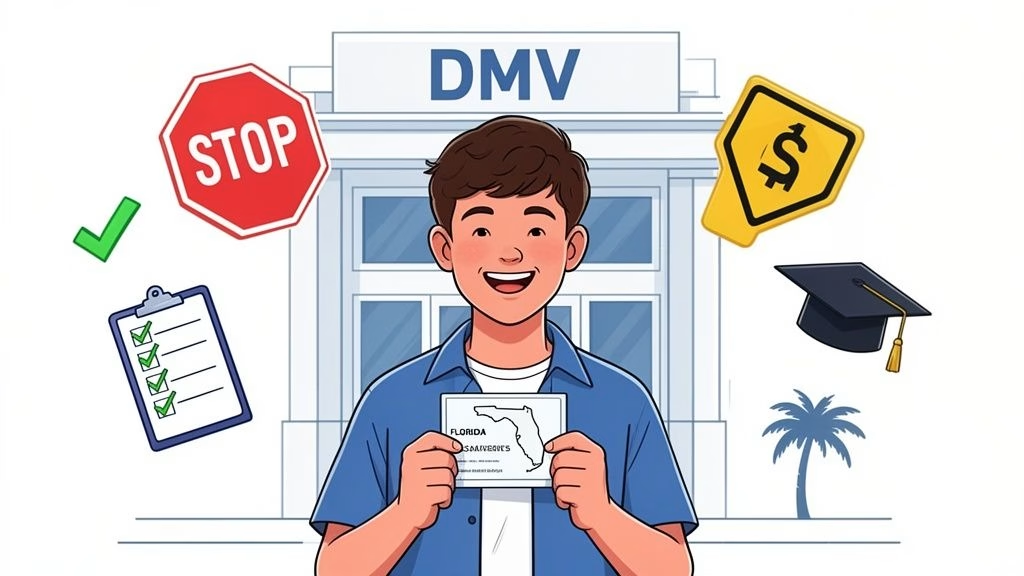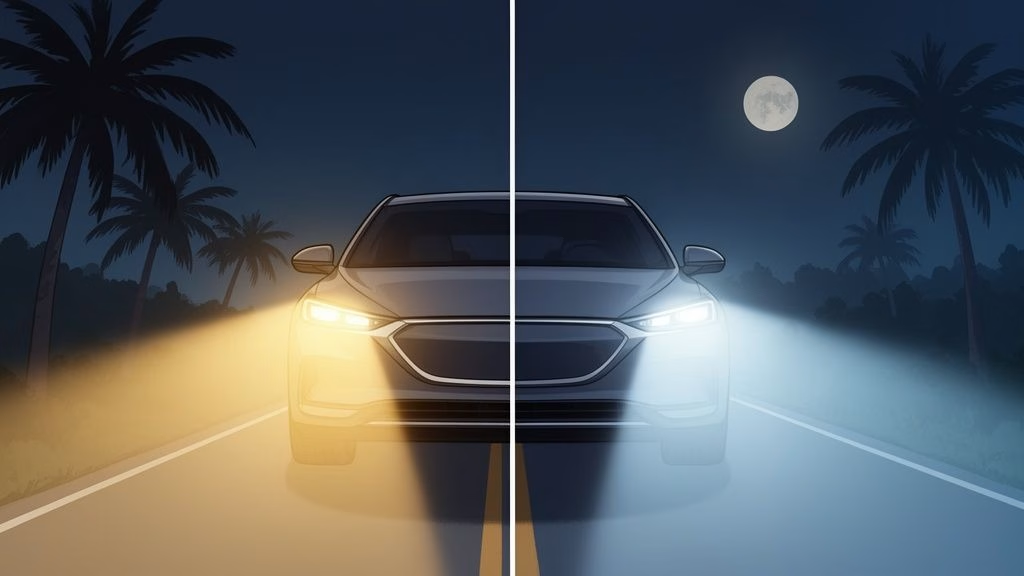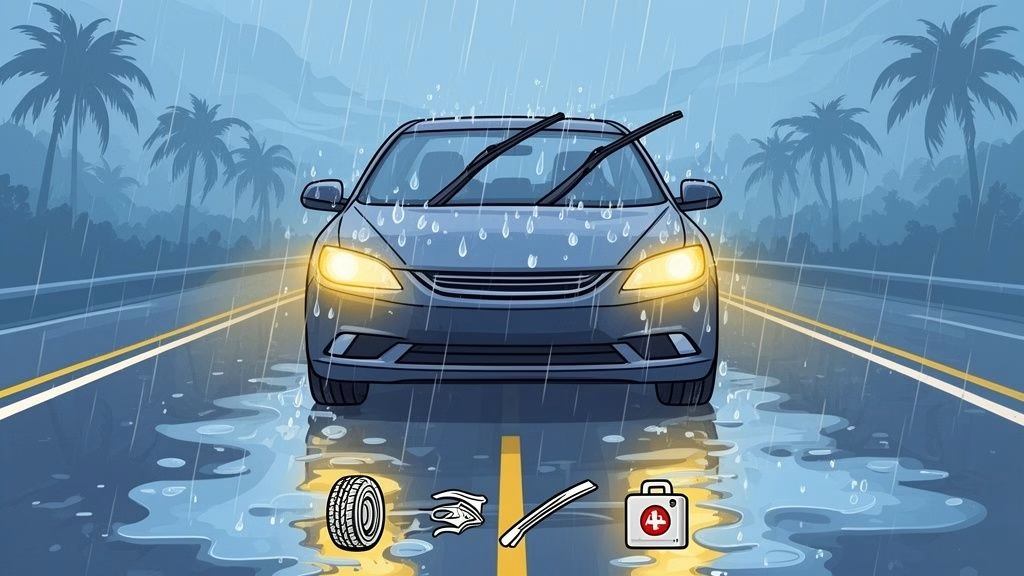Getting a traffic ticket doesn’t have to mean paying hefty fines or dealing with points on your driving record. Traffic school for ticket dismissal offers drivers a second chance to clear their violations while learning valuable safety skills.
We at floridadetscourse.com have helped thousands of drivers navigate this process successfully. The right traffic school program can save you money and protect your driving record from long-term consequences.
How Traffic School Works for Ticket Dismissal
Traffic school operates through a straightforward legal mechanism that replaces punishment with education. When you complete a state-approved course, the court dismisses your violation instead of adding points to your record. The National Safety Council reports that over 60% of traffic schools now offer online options, which makes this process more accessible than ever.
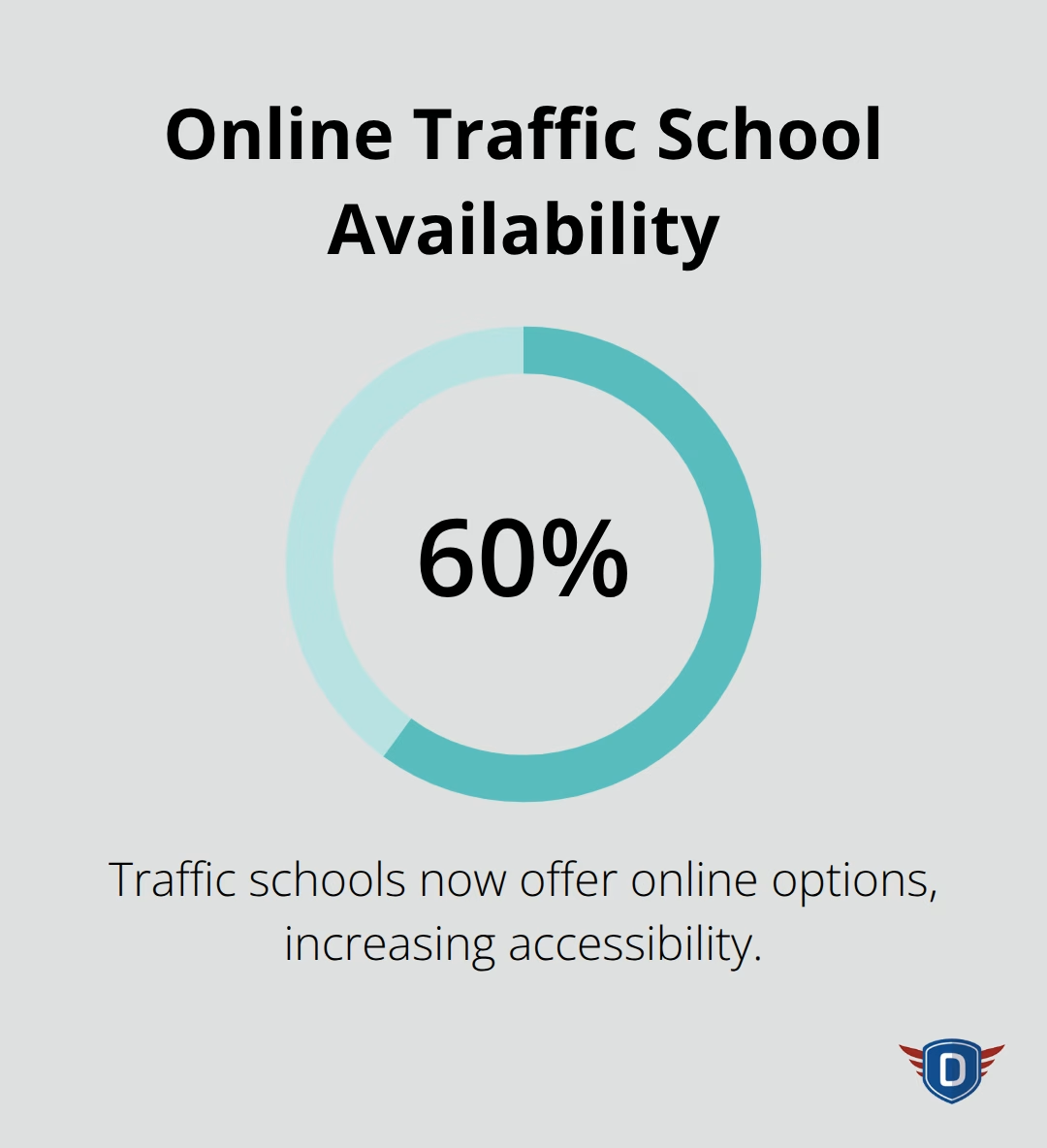
Most states require between 4 to 8 hours of instruction, with completion certificates issued directly to courts in many jurisdictions.
Violation Types That Qualify
Your eligibility depends on three key factors: violation type, timing, and your record history. Minor infractions like speeding or rolling stops typically qualify, while serious offenses like DUI or reckless driving never do. Most states limit traffic school to once every 12 to 18 months, and some require clean records for the past year. Commercial drivers face stricter restrictions, which often disqualify them entirely from this option.
Financial Benefits That Compound Over Time
Traffic school saves money beyond simple fine avoidance. Auto insurance premium rates increased by 10% in 2024, making any potential savings more valuable. Research shows drivers who took defensive driving courses had 11.1% crash involvement compared to 12.9% for those who skipped training.
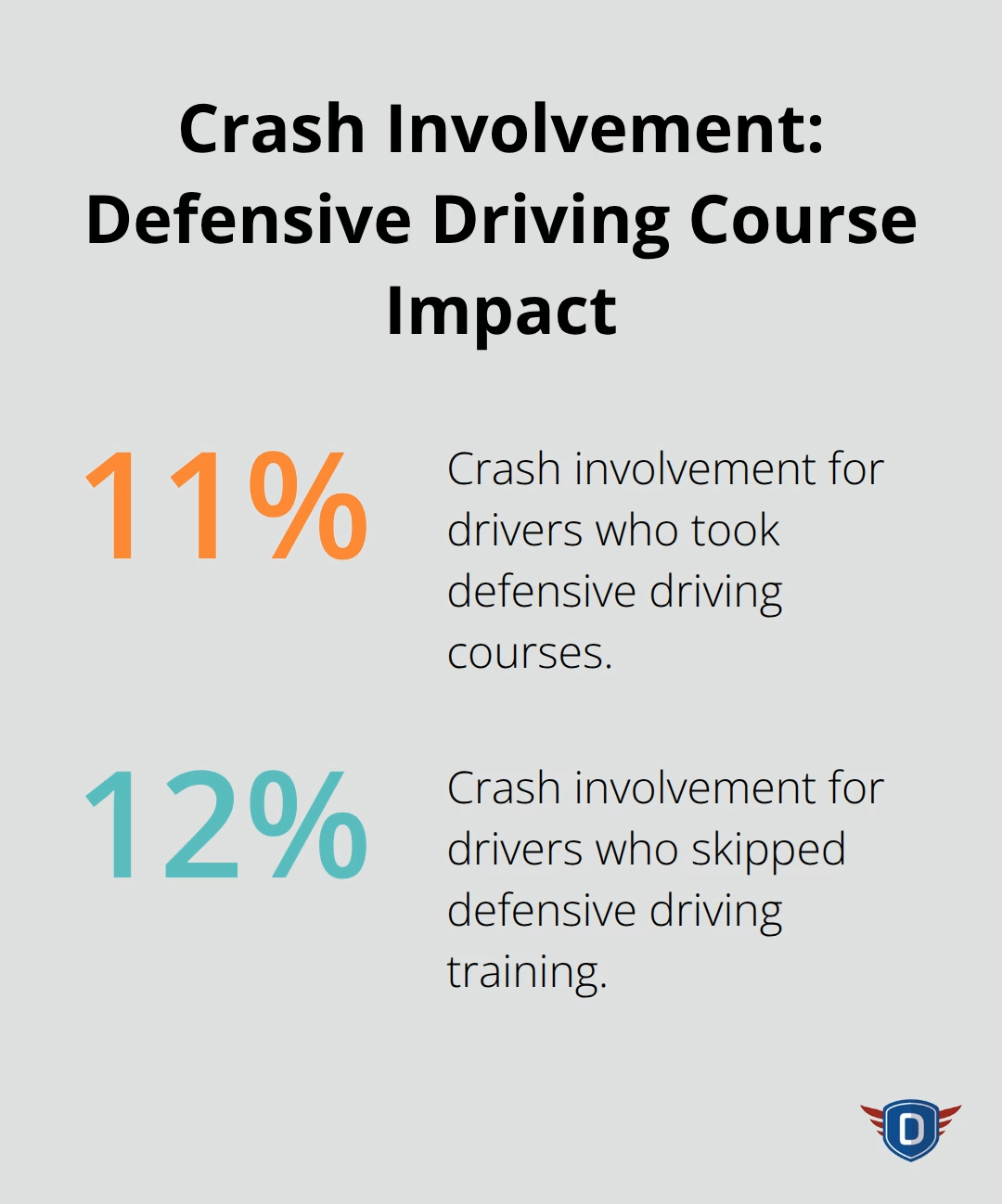
This safety improvement often leads to additional insurance discounts over time (making the initial course investment pay for itself within months).
Certificate Acceptance Requirements
Success requires courses approved by your specific court or DMV. Many programs cost between $25 to $100, but hidden fees can inflate final prices significantly. Always verify that your chosen school provides completion certificates recognized by your jurisdiction. Some courts require schools to submit certificates directly rather than accept driver submissions (so confirm this requirement before enrollment to avoid rejection and wasted time).
The next step involves selecting the right type of program that fits your schedule and learning preferences.
Which Traffic School Format Works Best
Online traffic schools dominate the market for good reason. These programs cost between $25 to $100, but watch for hidden fees that inflate final prices. Many schools advertise low rates then charge extra for audio content, video materials, or completion certificates. In-person classes still serve drivers who prefer direct instructor interaction, though they require fixed schedules and travel time that online options eliminate completely.
State Approval Matters More Than Marketing
State-approved programs hold more weight than court-approved alternatives in most jurisdictions. State approval means the Department of Motor Vehicles recognizes the course for point reduction and insurance discounts. Court approval only covers ticket dismissal within that specific jurisdiction. Florida requires all traffic schools to gain Department of Highway Safety and Motor Vehicles certification before they operate legally. California Vehicle Code Section 41501 mandates state oversight for all defensive driving programs. Always verify your chosen school displays current state certification numbers on their website. Programs without proper approval waste your time and money while they leave your ticket unresolved. The completion certificate must explicitly state state approval to satisfy court requirements and insurance company policies.
Time Investment Varies Dramatically
Most states mandate 4 to 8 hours of instruction, but completion timeframes differ significantly between providers. Some schools require students to finish courses within one session, while others allow multiple login sessions over several days. Florida’s Basic Driver Improvement course takes exactly 4 hours, while their Advanced Driver Improvement extends to 12 hours for repeat offenders. Kansas sets strict deadlines for course completion after court approval (typically 90 days from violation date). Schools that offer same-day certificates charge premium prices but eliminate wait periods for court submission. Factor lost wages into your cost calculation since in-person classes require specific time commitments during business hours.
Mobile Access and Device Compatibility
Modern traffic schools adapt to smartphone and tablet usage patterns that drivers prefer. Most state-approved programs now function across all devices without software downloads or special apps. This flexibility allows you to complete coursework during lunch breaks, commutes, or evening hours. Some providers restrict mobile access to certain course sections (particularly video content or final exams), which limits your schedule flexibility. Test your chosen school’s mobile compatibility before you pay, since technical limitations can force you into desktop-only completion schedules that conflict with work or family obligations.
The registration process and required documentation determine how quickly you can start your chosen traffic school program.
How Do You Complete Traffic School Successfully
Registration Requirements and Payment Process
Registration starts with three essential documents: your court citation number, driver’s license, and payment method. Most schools demand immediate payment between $25 and $150, though Florida’s Department of Highway Safety and Motor Vehicles certified programs typically cost under $100. You must submit your ticket information exactly as it appears on your citation since mismatched data triggers automatic rejection. Schools approved by California’s DMV require photo identification verification during enrollment to prevent fraud. Complete your personal information accurately because courts cross-reference student data with DMV records before they accept completion certificates.
Course Navigation and Exam Strategies
Traffic school courses divide into timed modules that prevent students from rushing through material too quickly. Most states require 80% passing scores on final examinations, with unlimited retake opportunities until you succeed. Focus on speed limit variations across jurisdictions since these questions appear frequently on exams. Study blood alcohol content charts and stopping distance calculations because numerical questions carry heavy weight in final grades. Take notes during video segments about defensive driving techniques since practical application questions dominate final tests.

Florida’s Basic Driver Improvement course includes seven timed modules with specific focus on substance abuse education that directly correlates to exam content.
Certificate Submission and Court Communication
Courts reject completion certificates for three main reasons: expired deadlines, unrecognized schools, and incomplete student information. Submit your certificate within the court-specified timeframe (typically 30 to 90 days from enrollment depending on your jurisdiction). Kansas courts require submission within 15 days from the infraction date regardless of when you complete coursework. Some jurisdictions like California allow schools to submit certificates directly to courts while others require personal delivery from students. Keep digital and physical copies of your completion certificate since courts occasionally lose submitted documentation. Verify certificate acceptance with court clerks within one week of submission to catch processing errors before deadlines expire.
Final Thoughts
Traffic school for ticket dismissal transforms costly violations into valuable education opportunities. Drivers who complete state-approved programs avoid points, prevent insurance increases, and gain safety skills that reduce future accident risk by nearly 2%. The process requires careful school selection, proper documentation, and timely certificate submission to courts.
Success depends on state-approved programs over court-only alternatives, mobile compatibility verification, and jurisdiction-specific deadline awareness. Most drivers complete courses within 4 to 8 hours at costs between $25 to $100 (making this investment far cheaper than fines plus increased insurance premiums). The safety benefits extend beyond immediate ticket dismissal since research shows drivers who complete defensive education maintain cleaner records and develop better hazard recognition skills.
We at floridadetscourse.com help drivers build essential safety skills through comprehensive education programs. Our instructors create supportive environments that develop lifelong safe habits. These programs go beyond basic requirements to shape confident, responsible drivers who navigate roads safely for years to come.

![Traffic School for Ticket Dismissal [2025 Guide]](https://floridadetscourse.com/wp-content/uploads/emplibot/traffic-school-for-ticket-dismissal-hero-1758683338.avif)
